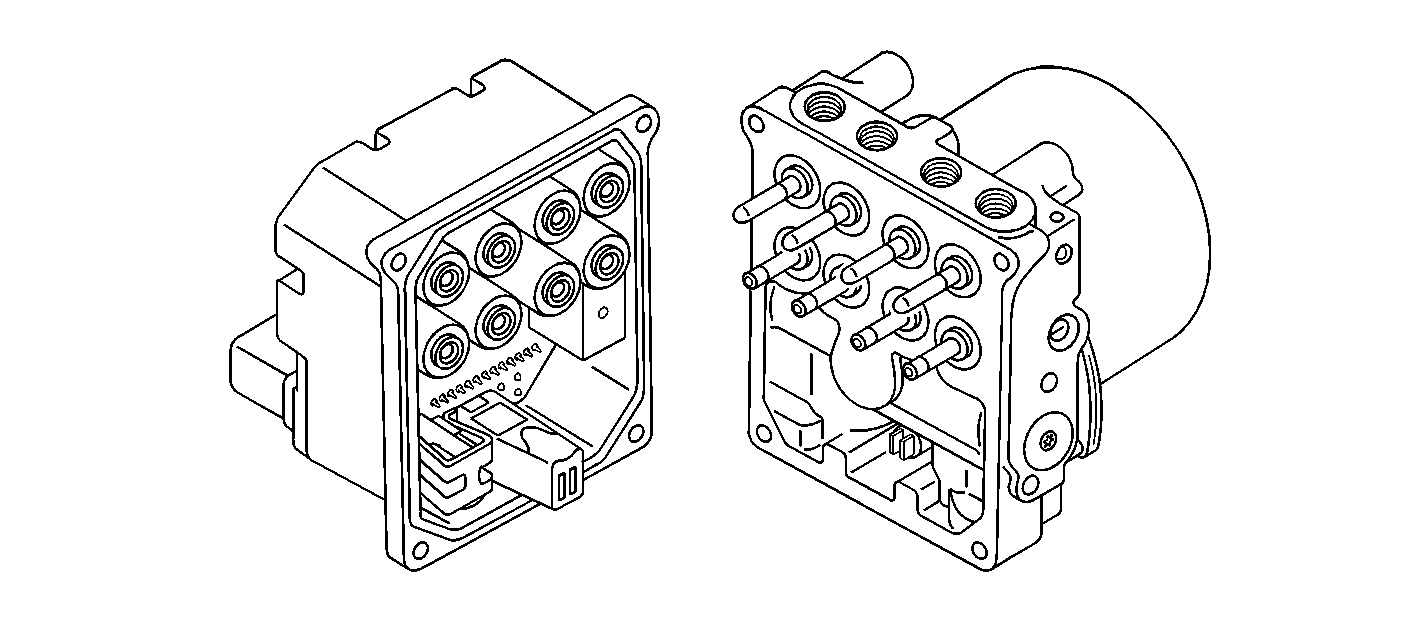
Circuit Description
The EBTCM monitors vehicle speed deceleration and ABS/TCS activation to calculate brake rotor temperatures. When brake rotor temperatures are exceeded, TCS will be disabled, DTC C1238 is set, and the TRAC OFF indicator is turned ON. If the brake usage is reduced during driving, the brake rotor cooling is calculated and TCS will be enabled.
Conditions for Setting the DTC
DTC C1238 could be set when either driven wheel estimated brake rotor temperature exceeds 375° C (700° F). If either driven wheel estimated brake rotor temperature has exceeded 375° C (700° F) during ABS or normal braking conditions, the code will not be set until the next TCS activation occurs. The code will not be set and TCS will not be disabled if both rotor estimated temperatures have cooled below 275° C (530° F) before the next TCS activation. If either driven wheel brake rotor temperatures has exceeded 375° C (700° F) during TCS then the code will be set immediately, but TCS will not be disabled until the end of the TCS event.
Action Taken When the DTC Sets
When the brake rotor temperatures are exceeded, the following events occur:
| • | A DTC C1238 is stored. |
| • | The TCS is disabled. |
| • | The TRAC OFF indicator is turned on. |
Conditions for Clearing the DTC
| • | The condition for the DTC are no longer present. |
| • | Cooling of brake rotors. |
Diagnostic Aids
| • | It should be noted that DTC C1238 may and can set normally during extremely aggressive driving conditions. Always inquire about recent driving condition or driving habits whenever this code is set. |
| • | The following conditions are other possible causes of this malfunction: |
| - | Excessive brake usage. |
| - | Excessive TCS usage. |
| • | When DTC C1238 is set, the following components should be checked for any signs of excessive wear: |
| - | Brake pads. |
| - | Brake rotors. |
Test Description
The numbers below refer to the step numbers on the diagnostic table.
Step | Action | Value(s) | Yes | No |
|---|---|---|---|---|
1 | Was the Diagnostic System Check performed? | -- | ||
2 |
Are there any other DTCs? | -- | Go to Diagnostic Trouble Code (DTC) List for the appropriate DTC | |
Is the Brake Thermal Model (BTM) exceeded? | -- | Go to Diagnostic Aids | ||
4 | Inspect the brake pads and rotors for any signs of excessive wear or heat damage. Are there any concerns present with overheating of the brakes? | -- | ||
5 | Repair any mechanical concerns such as binding, hang-up, excessive wear or poor release of the braking system. Is the repair complete? | -- | -- | |
6 | Replace the EBCM/EBTCM. Refer to Electronic Brake Control Module/Electronic Brake and Track Control Module Replacement . Is the replacement complete? | -- | -- |
